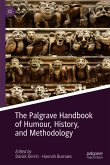As the tricolor rose over revolutionary France, language, with its ability to define ideals and allegiances, was both a threat to authority and weapon to be wielded. In the early years of the Republic, the Acad?mie Fran?aise, the royal body responsible for the French language, was suppressed by the National Convention at the urging of the Abb? Gr?goire and the artist Jacques-Louis David. However, by 1795, the National Convention recognized that language could be used to its advantage, leading it to commission a fifth edition of the
Dictionnaire de l'Acad?mie fran?aise, which would unquestionably become the most controversial edition in the Acad?mie's history. The National Convention expected this dictionary to champion the ideals of Revolution and Republic, but when it appeared three years later it did quite the opposite. Instead, the fifth edition virtually ignored the Revolution and the linguistic innovations that had transformed the French language, even omitting two of the most famous and enduring neologisms spawned by the Revolution--
ancien r?gime and Terror. Present-tense definitions of abolished institutions and anachronistic values dominated the work and the Revolution was consigned to a brief and hastily-prepared supplement at the end of the second volume. Because of its failure to capture the current state of the French language, most contemporaries judged it harshly, and its deficiencies led the Parisian publisher Nicolas Moutardier to publish a competing dictionary in 1802. The dictionary became the focus of protracted litigation that Napoleon Bonaparte's government increasingly used to assert its control over language. Indeed, Bonaparte met personally with the commission of the Institut National (the republican successor to the Acad?mie) and made clear his desire that the new edition not contain revolutionary neologisms. Eager to see the new edition appear, the Bonapartist regime committed financial resources and established a timetable for its completion within five years. However, it was only in 1835, after the fall of Bonaparte and the Bourbons, that the sixth edition would appear. Although the Acad?mie was one of the most prominent institutions under the Old Regime, scholarship on the Acad?mie remains largely neglected. Drawing on previously untapped sources in the Archives de l'Institut and Archives Nationales,
The Place of Words is the first book-length study of the controversial fifth edition of the
Dictionnaire de l'Acad?mie fran?aise. Spanning more than half a century of changing regimes, this study provides unique insight into the ways in which each government, from the publication of the fourth edition in 1762 to the sixth in 1835, viewed the role of language as an instrument of control.
Dieser Download kann aus rechtlichen Gründen nur mit Rechnungsadresse in A, B, BG, CY, CZ, D, DK, EW, E, FIN, F, GR, HR, H, IRL, I, LT, L, LR, M, NL, PL, P, R, S, SLO, SK ausgeliefert werden.
Hinweis: Dieser Artikel kann nur an eine deutsche Lieferadresse ausgeliefert werden.









